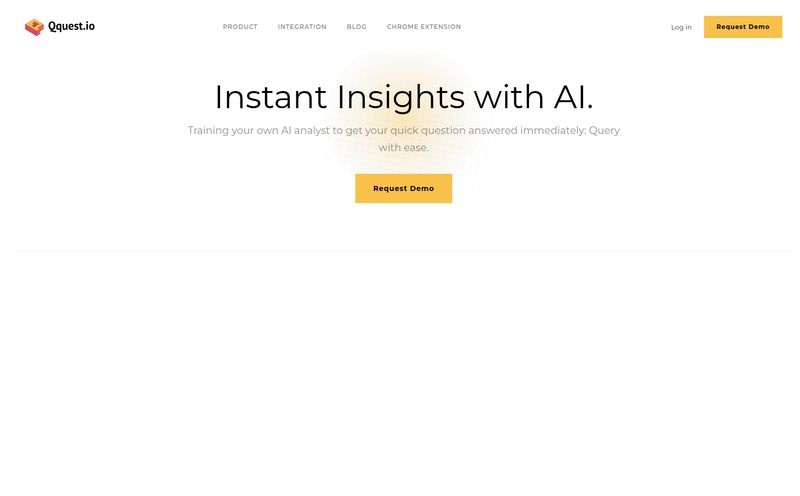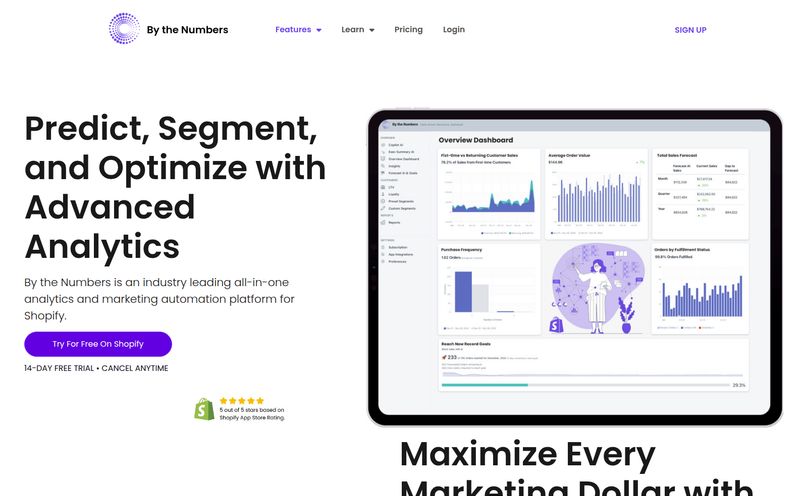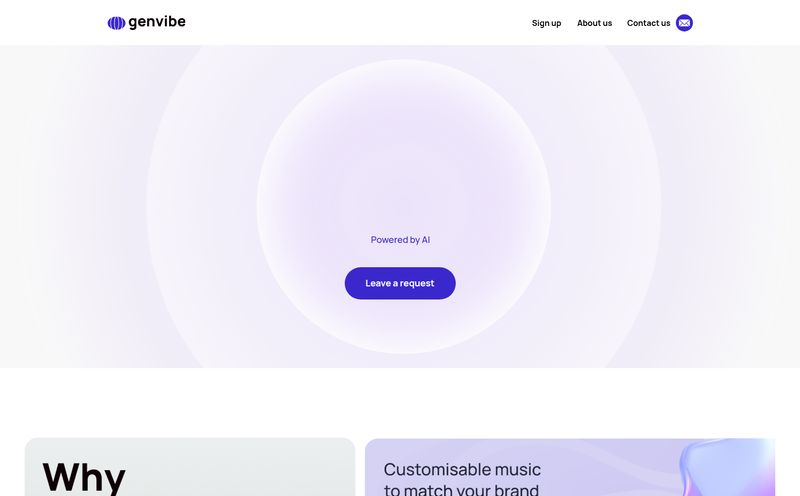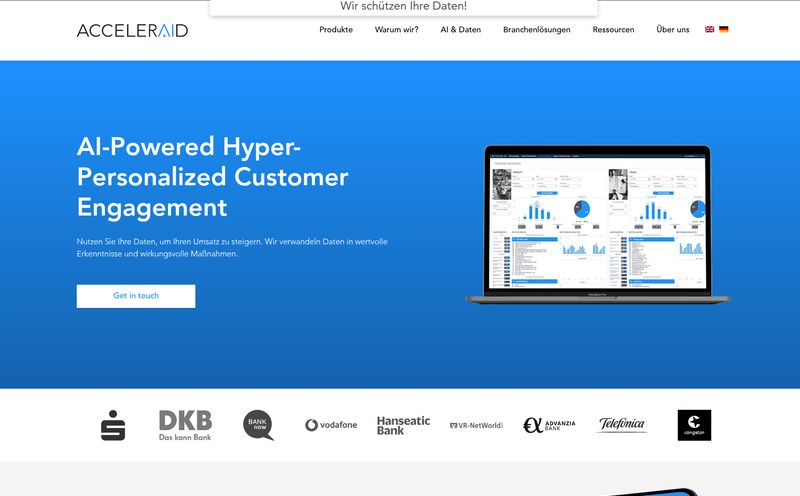If you're in the marketing or enterprise tech space, you've probably had your inbox absolutely flooded with pitches for the “next big thing in AI.” It’s a constant barrage of promises to revolutionize your customer engagement, triple your revenue, and probably walk your dog for you. I’ve been in this game for a while, and my skepticism meter is pretty finely tuned by now.
Most of the time, I see platforms that are either too generic to be truly useful or so niche they only solve one tiny problem. So when I started looking into Crayon Data and their maya.ai platform, I went in with my usual dose of caution. They’ve been around since 2012, which in AI years is basically the Jurassic period, so that caught my attention. They aren't just riding the latest hype train; they were building the tracks.
They talk a big game about AI-led revenue acceleration and B2B solutions. But what does that actually mean for a large business struggling to make sense of its mountains of customer data? Let’s get into it.
So, What on Earth is Crayon Data?
Let's cut through the corporate-speak. Crayon Data is a company that builds specialized AI tools for big businesses. Think large banks, travel companies, and major retailers. Their goal is to help these giants connect with customers on a more personal level, using data they already have but probably aren't using effectively.
I’ve always thought of personalization as this holy grail of marketing. It’s easy for a small business to remember a regular's favorite coffee order. But how does a bank with ten million customers do that? How do they offer a loan, a credit card, or a savings product that feels like it was chosen just for you, instead of being a random shot in the dark? That's the problem Crayon Data aims to solve. Their whole setup is designed to untangle massive datasets and find those golden opportunities for real, one-to-one engagement.
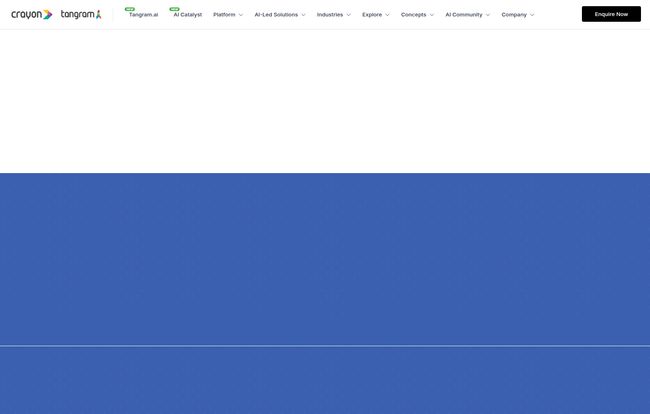
Visit Crayon Data
The Engine Room: A Look at the maya.ai Platform
The core of their offering is a platform called maya.ai. Now, this isn't some off-the-shelf software you just download and run. From what I can gather, it’s more like a set of incredibly sophisticated AI building blocks. This is where their “modular” approach comes in, and frankly, it’s the part I find most interesting.
Instead of a one-size-fits-all solution, they provide what they call AI Agents that can be pieced together to fit a company's specific needs. It's less like buying a pre-built car and more like being handed the keys to a high-tech garage with a team of expert mechanics. You can build a solution for:
- Customer Experience: Figuring out the next best offer for a customer.
- Data Management: Cleaning up and making sense of chaotic data silos.
- Business Intelligence: Finding patterns and trends that humans would miss.
This modularity means a business isn't forced to adopt a massive, monolithic system that disrupts everything. They can start with one specific problem, like improving offer acceptance rates, and build from there. For anyone who's been through a painful, multi-year platform migration, that sounds like a breath of fresh air.
Who Is This Really For? A Focus on Industry Specifics
Let’s be clear: this is not a tool for your buddy's startup or a local e-commerce store. Crayon Data is playing in the big leagues. Their case studies and language are all pointed squarely at large enterprises, specifically in sectors like:
- Consumer Banking: They help banks move beyond generic product pushes to hyper-personalized financial guidance.
- Digital Payments & Fintech: In a crowded market, they help these companies increase transaction volume by offering relevant merchant deals and rewards.
- Travel: Imagine a travel platform that knows your preferences so well it suggests a weekend getaway you didn't even know you wanted. That's the goal.
- Consumer Products (CPG): Helping brands understand purchasing habits and build loyalty beyond the point of sale.
This industry focus is a huge plus in my book. An AI that understands the compliance headaches of banking is fundamentally different from one built for retail. It shows they've done their homework and aren't just applying a generic algorithm to every problem.
The Good, The 'Hmm,' and The Reality of Crayon Data
No platform is perfect, and I always like to weigh the shiny promises against the practical realities. After digging around, here's my breakdown.
What I Genuinely Like About Their Approach
The biggest strength is that modular and flexible design. I've seen too many companies get burned by buying a massive, all-encompassing “solution” that they only ever use 20% of. The idea of starting small and scaling up is just plain smart business. Their long history since 2012 also gives them a certain gravitas. They have a proven track record, which builds a lot of trust in a field where AI companies pop up and disappear overnight.
A Couple of Things to Keep in Mind
On the flip side, this isn't a plug-and-play tool. The very nature of enterprise AI means there’s an inherent complexity. You're not just signing up online and getting an API key. This requires consultation, integration, and a real partnership. Also, and this is a big one for me, the pricing details are not public. You have to get in touch with them to talk numbers. While I get it—custom solutions have custom prices—it can be a bit of a hurdle when you're in the initial research phase. It signals that you need to be a serious buyer to even start the conversation.
The Million-Dollar Question: What's The Price Tag?
As I just mentioned, you won't find a pricing page with neat little tiers on the Crayon Data website. They direct you to contact them for a custom plan. And honestly? For this kind of B2B service, that’s standard procedure. The cost is going to depend entirely on the scale of your operation, the specific “AI agents” you need, and the level of integration required.
Think of it like commissioning a building. You wouldn't expect a fixed price before the architect knows if you're building a garden shed or a skyscraper. It’s frustrating for casual window shoppers, but for their target customer—a large enterprise with a multi-million dollar problem—it’s the only way that makes sense. My advice: if you're seriously considering them, don't be shy. Get on a call and have a frank discussion about your budget and goals.
Crayon Data vs. The World of AI Platforms
So where does Crayon Data fit in the broader tech ecosystem? It's not really a direct competitor to something like a generic CRM or a simple analytics tool. It’s a layer deeper. I see it as an alternative for companies that find the massive, all-in-one marketing clouds from giants like Adobe or Salesforce to be too rigid or expensive.
Crayon Data is like hiring a team of specialist data surgeons, whereas the big clouds can sometimes feel like a sprawling hospital with a bit of everything. If you have a very specific, high-value problem related to personalization at scale, a specialized player like Crayon might just be the sharper scalpel you need.
My Final Thoughts on Crayon Data
So, am I a convert? I'm definitely intrigued. Crayon Data appears to be a serious, mature player in the enterprise AI space. They're not selling smoke and mirrors; they're selling a specialized toolkit for solving complex problems. I respect their focus on specific industries and their modular, build-as-you-go philosophy.
If you're a small or medium-sized business, this is probably not for you. But if you're a decision-maker at a large enterprise, sitting on a treasure trove of data and frustrated with your inability to make it work for you, then Crayon Data is absolutely worth a conversation. They might just have the specific set of AI-powered wrenches you need to finally get your customer engagement engine running at full throttle.
Frequently Asked Questions
- 1. What is the maya.ai platform?
- maya.ai is Crayon Data's core platform. It's a full-stack, AI-native system that uses modular building blocks called AI Agents to deliver personalized customer experiences and analyze data for large enterprises.
- 2. What industries does Crayon Data specialize in?
- They have deep expertise in consumer banking, digital payments, financial tech, travel, and consumer packaged goods (CPG). Their solutions are built with the specific challenges of these industries in mind.
- 3. Is there a free trial for Crayon Data?
- Given the enterprise nature of their solutions, they don't offer a standard free trial. Engagement typically begins with a consultation to understand a business's specific needs and data landscape.
- 4. How is Crayon Data's pricing structured?
- Pricing is not publicly listed. It's based on a flexible, modular model tailored to each client's unique requirements, scale, and the specific AI solutions they choose to implement. You need to contact their team for a custom quote.
- 5. How is Crayon Data different from a standard CRM?
- A CRM is primarily a system for managing customer interactions and data. Crayon Data's maya.ai is an intelligence layer that sits on top of existing data sources (including a CRM) to proactively predict customer needs and drive personalized actions at scale, focusing on revenue acceleration.
- 6. What does it mean that Crayon Data has been around since 2012?
- It means they have over a decade of experience specifically in applying data science and AI to business problems, long before the recent generative AI boom. This suggests a mature technology stack and a deep understanding of the enterprise market.
